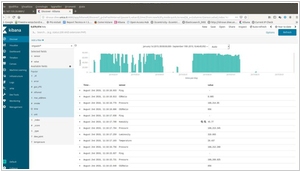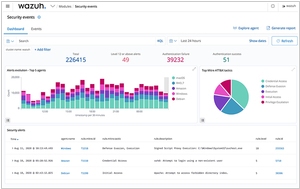ElasticSearch vs Wazuh
August 06, 2023 | Author: Michael Stromann
See also:
Top 10 Big Data platforms
Top 10 Big Data platforms
Elasticsearch and Wazuh are two distinct tools that cater to different aspects of log management and security.
Elasticsearch, as mentioned earlier, is an open-source distributed search and analytics engine. It excels at indexing and querying large volumes of data, making it a powerful choice for log aggregation, full-text search, and data exploration. While Elasticsearch provides a robust platform for data storage and retrieval, it does not come with built-in security features, and organizations often rely on additional tools like Kibana for user access control and data encryption.
Wazuh, on the other hand, is an open-source security monitoring platform that leverages Elasticsearch for log storage and analysis. Wazuh is specifically designed for cybersecurity use cases, offering real-time threat detection, incident response, and compliance monitoring. It integrates with various data sources, including log files, system events, and network traffic, to provide comprehensive security monitoring and analysis. Wazuh includes pre-built rules and correlation capabilities that help identify and respond to security threats proactively.
See also: Top 10 Big Data platforms
Elasticsearch, as mentioned earlier, is an open-source distributed search and analytics engine. It excels at indexing and querying large volumes of data, making it a powerful choice for log aggregation, full-text search, and data exploration. While Elasticsearch provides a robust platform for data storage and retrieval, it does not come with built-in security features, and organizations often rely on additional tools like Kibana for user access control and data encryption.
Wazuh, on the other hand, is an open-source security monitoring platform that leverages Elasticsearch for log storage and analysis. Wazuh is specifically designed for cybersecurity use cases, offering real-time threat detection, incident response, and compliance monitoring. It integrates with various data sources, including log files, system events, and network traffic, to provide comprehensive security monitoring and analysis. Wazuh includes pre-built rules and correlation capabilities that help identify and respond to security threats proactively.
See also: Top 10 Big Data platforms





